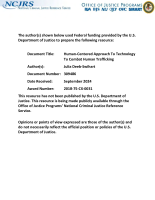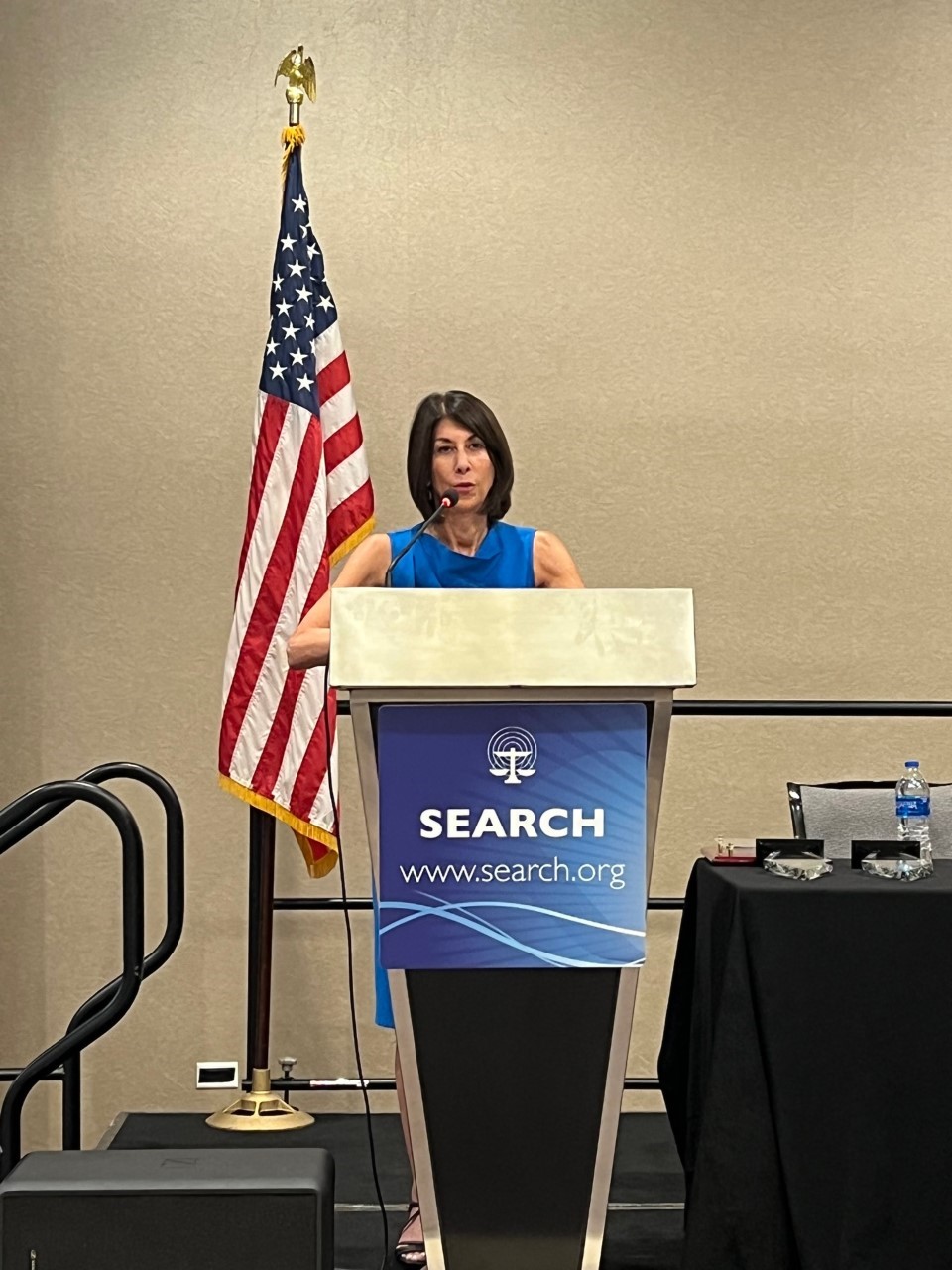Traffic stops
Criticality of Spray Solvent Choice on the Performance of Next Generation, Spray-Based Ambient Mass Spectrometric Ionization Sources: A Case Study Based on Synthetic Cannabinoid Forensic Evidence
Human-Centered Approach To Technology To Combat Human Trafficking
De-escalation Training: What Works, Implementation Lessons, and Taking It to Scale; Plenary at the 2023 NIJ Research Conference
Police use of force, while infrequently used, is a tremendous concern to public safety in the United States when officers employ it excessively or inappropriately, causing injury or death and eroding public trust in law enforcement. This plenary from the 2023 NIJ Research Conference describes the Integrating, Communications, Assessment, and Tactics (ICAT) de-escalation training program developed by the Police Executive Research Forum to guide officers in defusing critical incidents.
See the YouTube Terms of Service and Google Privacy Policy
Statewide Law Enforcement Crime Research, Evaluation, and Analysis
Webinar Transcript: W.E.B. Du Bois Program of Research on Reducing Racial and Ethnic Disparities in the Justice System, Fiscal Year 2021
Following is a transcript of a webinar hosted by NIJ in support of the funding opportunity "W.E.B. Du Bois Program of Research on Reducing Racial and Ethnic Disparities in the Justice System, Fiscal Year 2021."
DARYL FOX: Good afternoon, everyone, and welcome to today’s webinar, Funding Opportunities Through NIJ, the W.E.B. Du Bois Program of Research on Reducing Racial and Ethnic Disparities in...
Evaluation of traffic behavior in response to alternative police lighting
Enhancing Procedural Justness of Encounters Through Substantiation (EPJETS): The Atlantic County Randomized Controlled Trial.
Building Trust Inside and Out The Challenge of Legitimacy Facing Police Leaders
In the face of budget cuts, changing workforce demands, new varieties of crime and new technologies, how should police executives manage officers and other personnel and still ensure that organizational goals are being met?
Drawing on new data from a national sample, Dr. Dennis Rosenbaum, Director of the Center for Research in Law and Justice at the University of Illinois, Chicago, discussed the latest findings...
State Police Traffic Stop Data Collection Procedures (Bureau of Justice Statistics)
Collected data from state law enforcement agencies with traffic patrol responsibility about their policies for recording race and ethnicity data for persons in traffic stops. Basic information was obtained on the circumstances under which demographic data were collected for traffic-related stops and whether this information was stored in an electronically accessible format. The data collection was not designed to obtain available agency databases containing traffic-stop...




